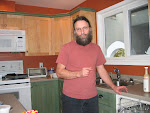I have a subscription to
The Chronicle of Higher Education at the office. Inside a recent issue was something that other subscribers in the US had already been talking about on some academic discussion lists I follow: the "free" DVD of a "pre-release Special One Hour Edition" of a "special Advertising Insert" called
Obsession: Radical Islam's War Against the West. Most of the discussions I have read about this video have focused on who is behind this incredibly expensive campaign and its links to the US election. In the US it is now being distributed directly to university students through their on-campus mailboxes on certain campuses.
For me, this video links into two other topic of recent concern to me, both related to Islamophobia. One relates to Barack Obama and the idea that he might secretly be a Muslim (and clearly links to
Obsession). The other has to do with the British Columbia Human Rights Tribunal (BCHRT) hearing regarding Mark Steyn, Macleans Magazine, Roger's Publishing and the Canadian Islamic Congress. The former topic is only of "academic" concern to me but the underlying issue is the same as the essence of the BCHRT matter with which I was involved as an "expert witness". I have wanted to write about this topic for a while and I plan to have a chapter in the forthcoming new edition of a book of mine dealing with it -- and the widespread distribution of
Obsession proves the need for it even more.
On Saturday I learned that the BCHRT had issued its decision in the Macleans case, rejecting the complaint. The decision,
available here, is, to me as a non-lawyer, interesting and well-reasoned. The decision is justified through a fine balancing of "rights" and "freedoms" and also based clearly (to me) on legal precedents. Given the many misgivings I had about my "performance" on the occasion of being an "expert witness" (primarily provoked by reading too many right-wing bloggers probably whose abusive approach both to the tribunal members and to me personally is not something I am accustomed to), I was glad to read that the members of tribunal heard what I said and took it seriously. That they gave me the "last word" in their summary is satisfying but it does leave me with the feeling that I failed to express a crucial follow-up to my observation. The Tribunal comments (in paragraph 157) "We think that Dr. Rippin put it best when he said that the Article is a rallying cry to the 'West'. The Article may attempt to rally public opinion by exaggeration and causing the reader to fear Muslims, but fear is not synonymous with hatred and contempt." What I suggested is that Mark Steyn is attempting to reform Euro-American society towards a structure of minimal government interference (claiming that we have lost "our" strength due to governmental over-protection) and in which traditional (patriarchal) power structures remain intact. In order to "scare" Euro-American society into action on these issues, he raises the "threat" of Islam. The issue is not Islam, as such, but rather, it is a rallying point to provoke a change in the nature of Euro-American government and society. The point is, from my perspective and why I was willing to be a part of the hearing, that Muslims are the innocent victims caught in the middle of this political battle over the nature of US society and government. That's what "Islamophobia" is all about.
As it happens, the Tribunal lamented not hearing a definition of "Islamophobia". The best definition comes from a British report done by the Runnymede Trust. Details may be found in
Wikipedia. The summary is as follows:
The Runnymede report identified eight perceptions related to Islamophobia:
1) Islam is seen as a monolithic bloc, static and unresponsive to change.
2) It is seen as separate and "other." It does not have values in common with other cultures, is not affected by them and does not influence them.
3) It is seen as inferior to the West.
4) It is seen as barbaric, irrational, primitive, and sexist.
5) It is seen as violent, aggressive, threatening, supportive of terrorism, and engaged in a clash of civilizations.
6) It is seen as a political ideology, used for political or military advantage.
7) Criticisms made of "the West" by Muslims are rejected out of hand.
8) Hostility towards Islam is used to justify discriminatory practices towards Muslims and exclusion of Muslims from mainstream society. Anti-Muslim hostility is seen as natural and normal.
*******
Sunday October 19: As a follow-up to this the following text from Colin Powell is relevant to the remark above about Obama:
"I'm also troubled by, not what Senator McCain says, but what members of the party say. And it is permitted to be said such things as, "Well, you know that Mr. Obama is a Muslim." Well, the correct answer is, he is not a Muslim, he's a Christian. He's always been a Christian. But the really right answer is, what if he is? Is there something wrong with being a Muslim in this country? The answer's no, that's not America. Is there something wrong with some seven-year-old Muslim-American kid believing that he or she could be president? Yet, I have heard senior members of my own party drop the suggestion, 'He's a Muslim and he might be associated terrorists'."
And on Steyn and his ilk, see now
http://www.smearcasting.com/index.html compiled by FAIR, an American media watch group.
 ...
... ...
...



